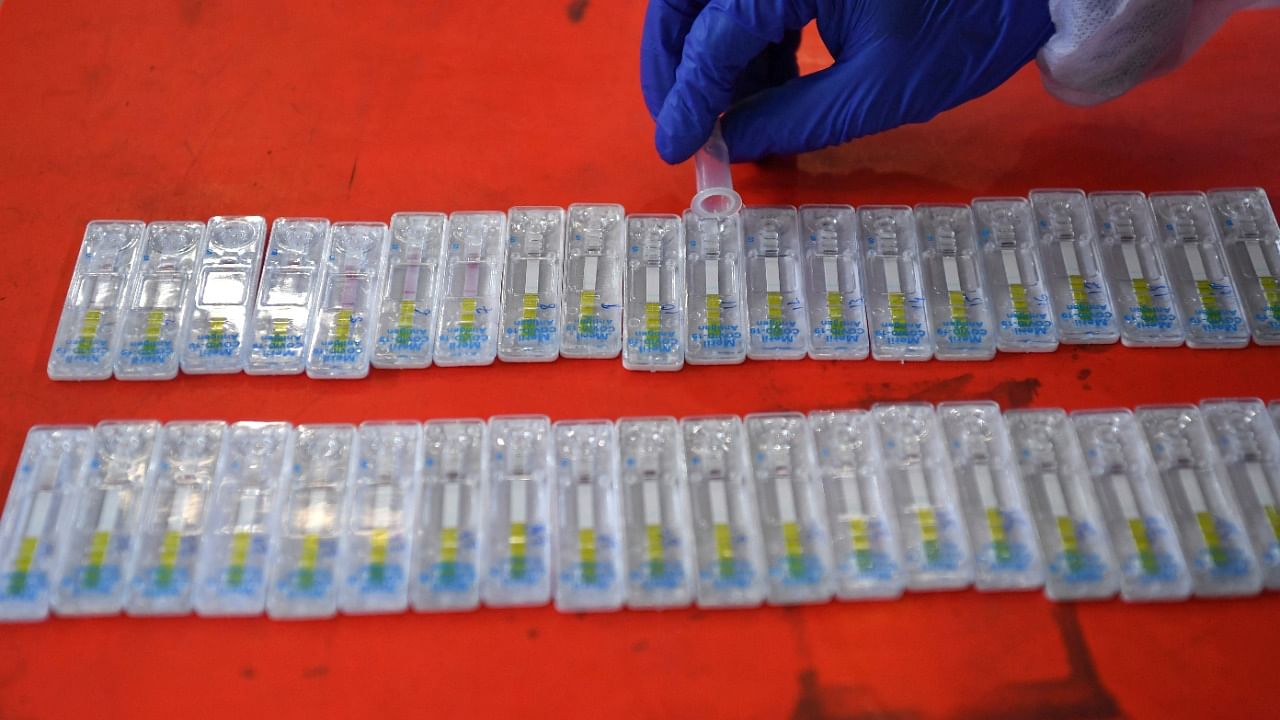
Karnataka has inoculated 85.9 per cent of its population with the first dose of Covid-19 shot as on Sunday, but the high vaccination coverage is creating an unexpected byproduct — complacency among the public. Health officials have been finding that people with symptoms of Covid-19 are hesitant to get tested.
The result has been a drop in testing rates over the course of the last three weeks. According to officials, the state’s daily target is 1.75 lakh tests per day. However, since October 15, when daily testing rates began to fluctuate, an average of about 91,000 tests is being done daily.
In Bengaluru Urban, the daily target is 75,000 tests, but only 41,600 are being done. The result is fewer cases being found, with a source stating that hesitancy among symptomatics is restricting surveillance measures to random testing at bus stops, railway stations and other public locations, plus schools and colleges (the latter accounting for 5%-10% of all daily tests).
“The testing numbers are coming down because the number of cases is also going down. A significant portion of new testing rates are primary and secondary contacts, and as the number of new positive cases comes down, the number of contacts also decreases. However, house-to-house vaccination awareness visits are turning up people with Covid-19 symptoms, who are abstaining from getting a test,” said Dr Arundhathi Chandrashekar, Director, National Health Mission.
The matter was illustrated by the experience of two Bengaluru Urban residents, Ravi (43) and Sumeeth (37), who came down with flu-like symptoms in October but declined to get tested for the novel coronavirus. “Both men had been vaccinated twice, between 40 and 50 days before the point of infection. However, instead of getting checked, both preferred to treat their symptoms as a typical case of flu, and used a mix of paracetamol and over-the-counter drugs,” said a source in the Bruhat Bengaluru Mahanagara Palike (BBMP).
While both recovered within three to four days, the lack of a test meant they could not know whether or not they were infected with run-of-the-mill influenza or Covid-19. Experts noted that this itself has several implications: Notably the chance for early detection and getting the right medical treatment before the disease reaches an advanced stage of infection is lost.
Late presentations?
Testing hesitancy could also be leading to late presentation cases. An internal assessment by the BBMP found that out of the small number of Covid-19 hospitalisations happening daily (an average of three per day for the last two weeks), most going into the ICU were people who had been vaccinated twice, as many as 100 days before. Those requiring ICU-V, however, were largely unvaccinated individuals.
“These are people across the socio-economic spectrum,” noted Dr Thrilok Chandra, Special Commissioner (Health), BBMP.
“It is absolutely vital for people to get tested because it is the only way to build a true picture of the outbreak. Even if people have mild symptoms they must get tested,” said Dr Arundhathi.
D Randeep, Health Commissioner, added that in light of people not revealing their symptoms, it becomes doubly important for people with Influenza Like Illness (ILI) or Severe Acute Respiratory Infection (SARI) to be tested “and reported to the government on the KPME portal by all hospitals”.
Officials have previously complained about haphazard disclosures by private hospitals.
Check out latest DH videos here